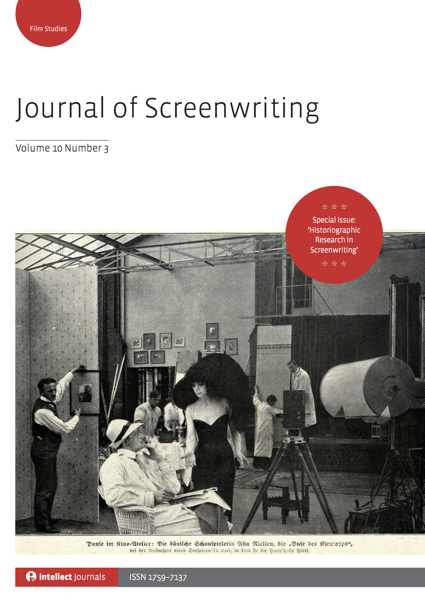Watch this entire presentation
Subscribe to Rosanne’s Channel and receive notice of each new video!
Transcript:
This is actually a program from New Zealand. Who knew New Zealand made television, but I have my students write spec scripts — speculative scripts — which are their own versions of a show that already exists to teach the art of copying, because if you’re going to write television you have to copy what exists and then you make your own story, but you have to know how the characters sound. So, I have them pitch ideas from programs they are watching, but they have to write a United States show because that’s what the people are going to read in the United States. This young man pitched an episode of this show because he saw it on Netflix and he didn’t even realize it wasn’t from the United States. he didn’t even notice that they were using city names from New — he didn’t know what New Zealand was really, but the TV showed him and I stay that we learn the mythology of other cultures. This is a show about Norse mythology. the young boys on the program discover that they are the re-born versions of Norse gods and their goal is to get together with the other Norse gods and eventually go back to heaven together and rule the world. It’s adorable and I wouldn’t have heard about it except for Netflix.
Watch this entire presentation
A Note About This Presentation
A clip from my keynote speech at the 10th Screenwriters´(hi)Stories Seminar for the interdisciplinary Graduation Program in “Education, Art, and History of Culture”, in Mackenzie Presbyterian University, at São Paulo, SP, Brazil, focused on the topic “Why Researching Screenwriters (has Always) Mattered.” I was especially pleased with the passion these young scholars have toward screenwriting and it’s importance in transmitting culture across the man-made borders of our world.
To understand the world we have to understand its stories and to understand the world’s stories we must understand the world’s storytellers. A century ago and longer those people would have been the novelists of any particular country but since the invention of film, the storytellers who reach the most people with their ideas and their lessons have been the screenwriters. My teaching philosophy is that: Words matter, Writers matter, and Women writers matte, r so women writers are my focus because they have been the far less researched and yet they are over half the population. We cannot tell the stories of the people until we know what stories the mothers have passed down to their children. Those are the stories that last. Now is the time to research screenwriters of all cultures and the stories they tell because people are finally recognizing the work of writers and appreciating how their favorite stories took shape on the page long before they were cast, or filmed, or edited. But also because streaming services make the stories of many cultures now available to a much wider world than ever before.
Many thanks to Glaucia Davino for the invitation.
* A portion of each sale from Amazon.com directly supports our blogs
** Many of these books may be available from your local library. Check it out!
† Available from the LA Public Library
Podcast: Play in new window | Download
Subscribe: RSS
![40 The Almighty Johnsons from New Zealand from Why Researching Screenwriters Has Always Mattered [Video] (1 minute 12 seconds)](https://rosannewelch.com/wp-content/uploads/2020/12/rmw-sao-paolo-40.png)

![39 My Own Favorite International TV Shows from Why Researching Screenwriters Has Always Mattered [Video] (1 minute 31 seconds)](https://rosannewelch.com/wp-content/uploads/2020/12/rmw-sao-paolo-39.png)
![38 More On International TV Shows and the US from Why Researching Screenwriters Has Always Mattered [Video] (1 minute 18 seconds)](https://rosannewelch.com/wp-content/uploads/2020/11/rmw-sao-paolo-38.png)
![37 International TV Shows and the US from Why Researching Screenwriters Has Always Mattered [Video] (41 seconds)](https://rosannewelch.com/wp-content/uploads/2020/11/rmw-sao-paolo-37.png)
![36 Streaming Companies and World Culture from Why Researching Screenwriters Has Always Mattered [Video] (1 minute 19 seconds)](https://rosannewelch.com/wp-content/uploads/2020/11/rmw-sao-paolo-36.png)